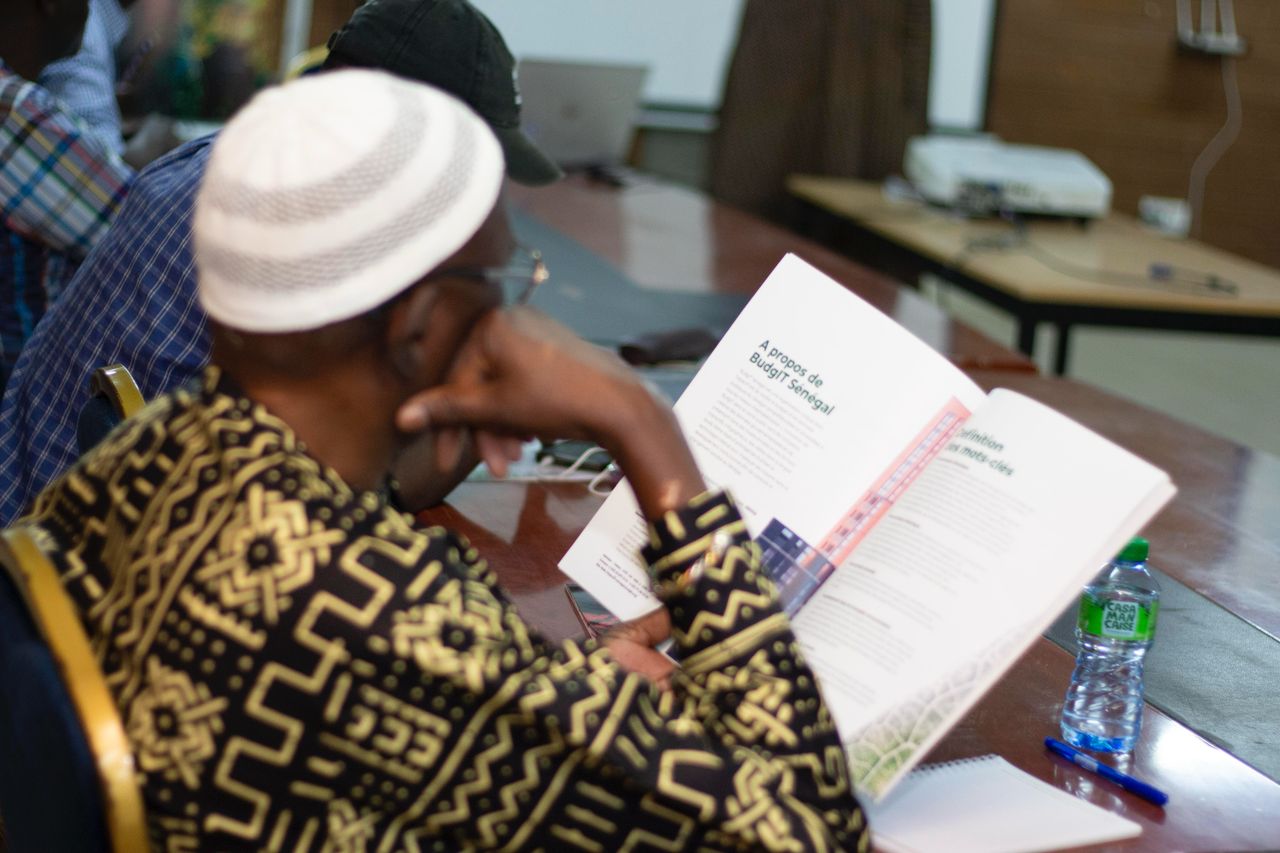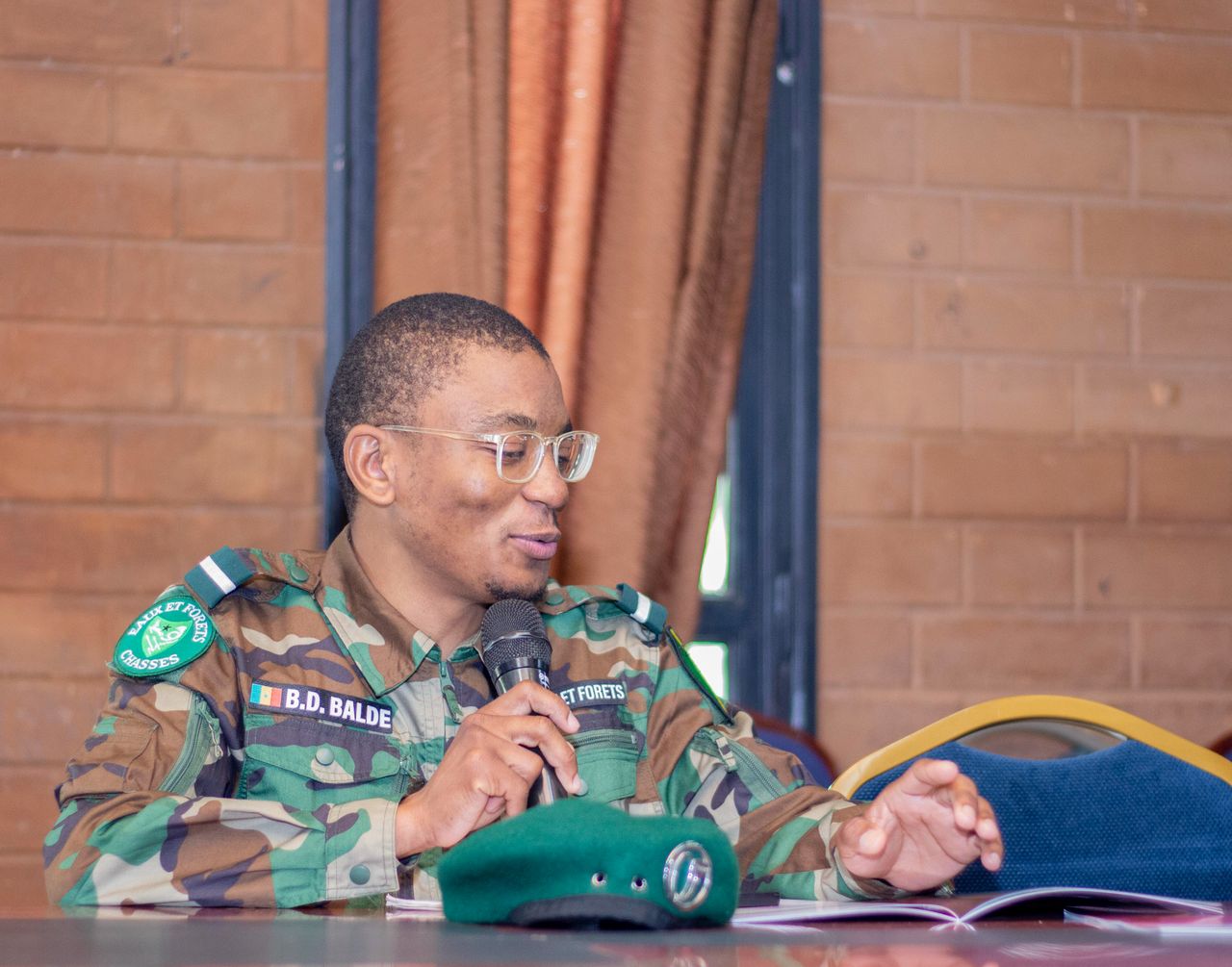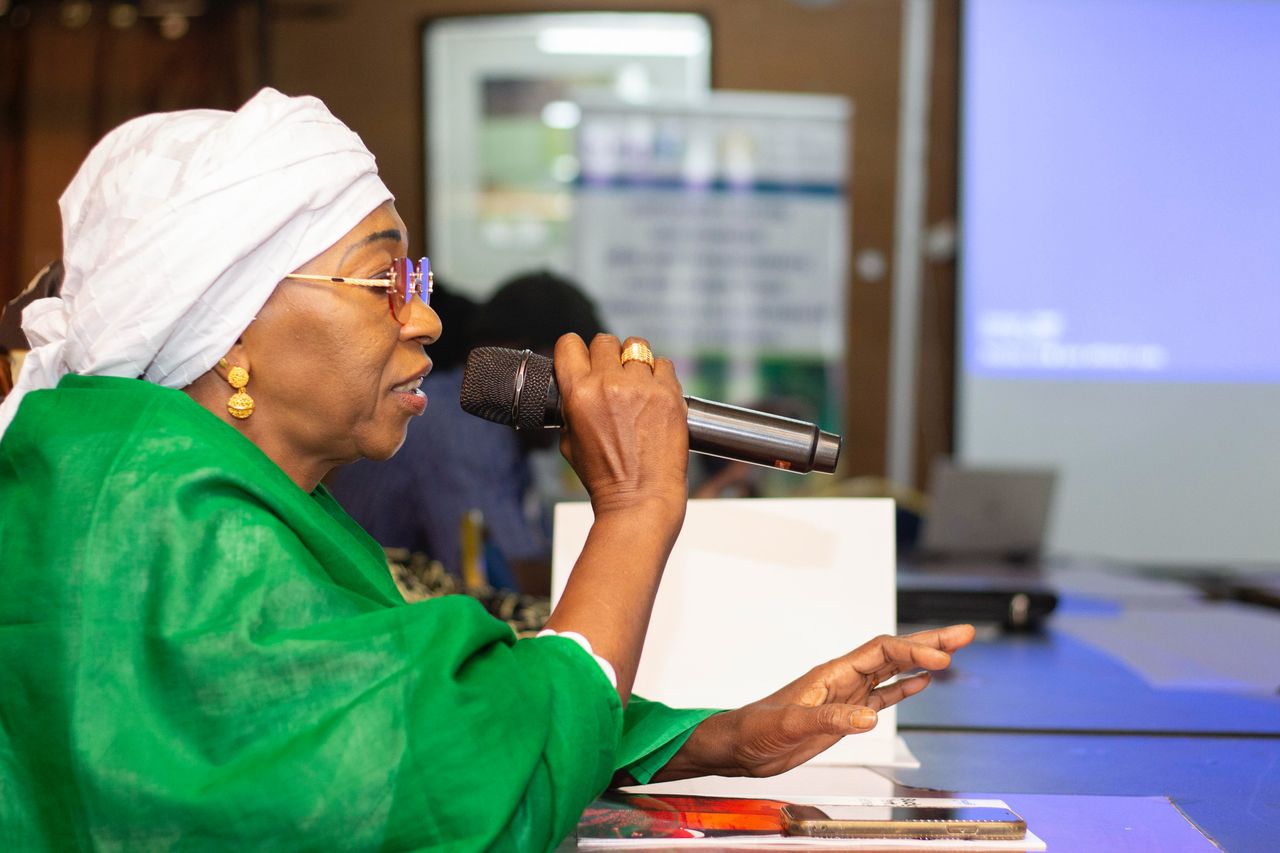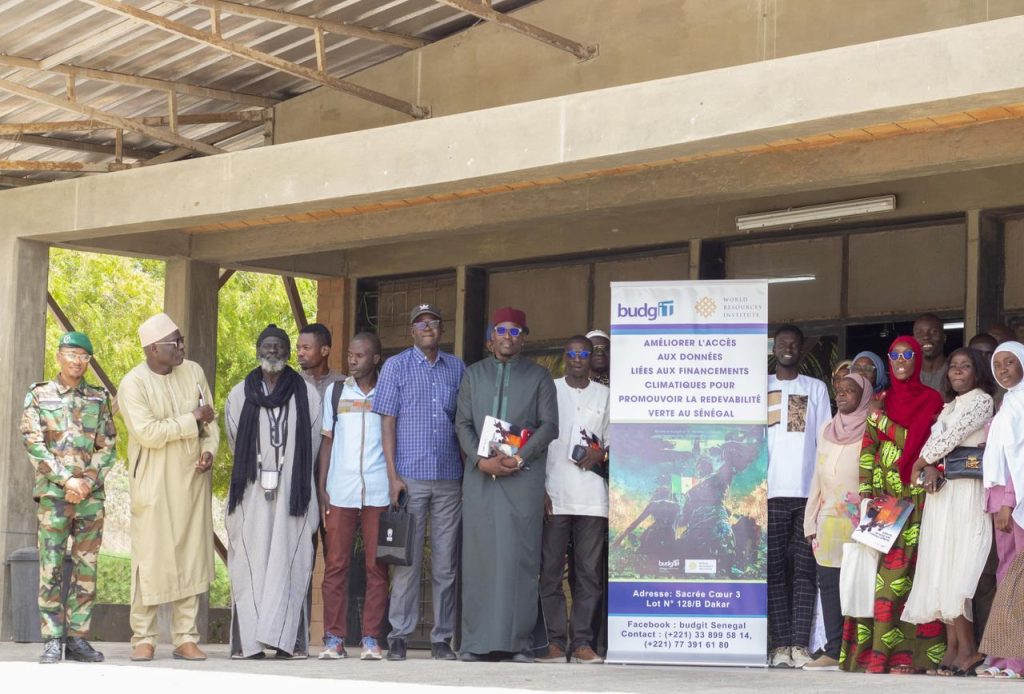As part of our continued efforts to promote Green Budget Accountability in Senegal, we hosted our second community meeting in Saint-Louis. With the support of the World Resources Institute (WRI), the event was held on April 23, 2025, at Lycée Technique André Peytavin. This community outreach brought together around 40 participants, including disaster victims, fishermen from Guet Ndar, climate-displaced persons from Gandiol, students, teachers, and civil society members.
The Saint-Louis region, located in northern Senegal, is one of the areas most vulnerable to the effects of climate change. It is severely affected by coastal erosion, rising sea levels, salinization of agricultural land, and repeated flooding. These ecological disruptions have caused massive population displacements, especially in Gandiol, where many families have had to abandon their homes, which have become uninhabitable. Fishing communities, particularly those from Guet Ndar, see their fishing zones shrinking, threatening their primary means of livelihood.

The workshop organized by BudgIT raised participants’ awareness of the 2024 green budget allocations by presenting accessible materials: simplified brochures and explanatory videos in French and Wolof. Aminata Diop, Project Officer at BudgIT, and El Hadj Amadou Samb, Country Director, emphasized the importance for citizens to understand how climate funds are used and to engage in public decisions so that local priorities are better taken into account.
“In Gandiol, I saw my house swallowed by the sea. Today, I live with my family in a precarious shelter. They talk about budgets for the environment, but we don’t even know where that money goes,” said Fatoumata Ndiaye, a climate-displaced person. Among the fishermen, Mamadou Diop, a native of Guet Ndar, highlighted, “Our canoes have to go further and further to find fish; traditional fishing zones are destroyed by erosion and dams. We need support, but also to understand what the state plans for us.”

The event also benefited from contributions by scholars from Gaston Berger University (UGB), who provided scientific insights on the causes of climate change in the region and its socioeconomic consequences. “It is urgent to link scientific knowledge with the real needs of the populations. The green budget must rely on reliable data and include communities at every stage of planning,” insisted Professor Ndiaye, an environmental geosciences specialist.
Participants made several concrete recommendations: building dikes to contain coastal erosion, supporting agriculture resistant to salinization, dignified relocation of displaced families, and developing solar energy programs for rural areas. They also advocated for the greater involvement of youth and women in local budget decisions.
At the end of the session, the participants praised BudgIT’s initiative and expressed their willingness to follow public investment projects in their region. “This meeting gave us tools to understand and act. We can no longer be mere spectators while our villages disappear,” affirmed Coumba Gaye, Regional Officer of BudgIT in Saint-Louis, while encouraging youth to take a greater interest in climate governance and public resource management issues.

This second phase of the Green Accountability initiative reflects BudgIT’s commitment to making communities key players in climate governance. Through this program, BudgIT aims to promote stronger citizen ownership of green financing, ensuring that local priorities are genuinely addressed. More community meetings are planned in the coming months, particularly in areas heavily affected by climate change, such as Fatick. These continued efforts are part of our broader mission to make green accountability a concrete lever for action in the face of the climate crisis.
Aminata Laye Diop
Junior Project Officer.
